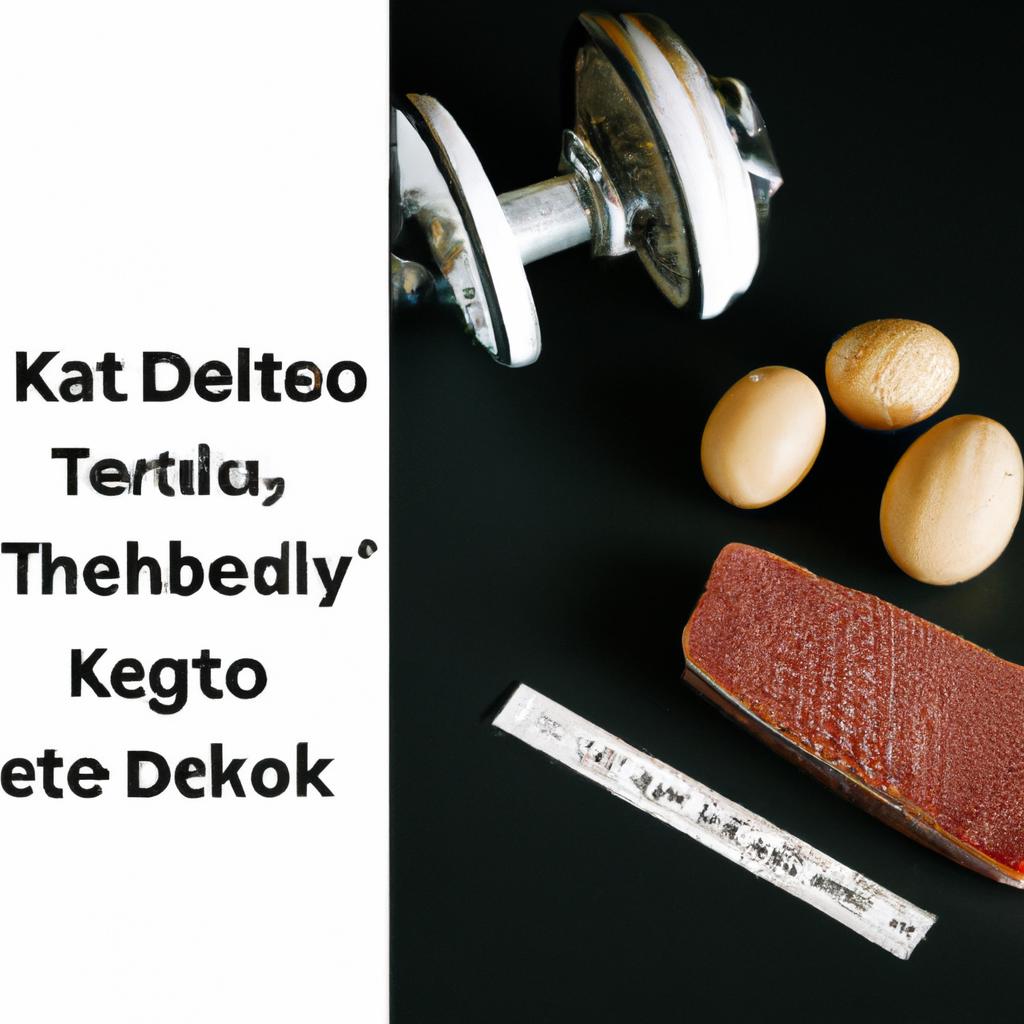**”The Impact of a Ketogenic Diet on Recovery Times for High-Intensity Athletes: Exploring the Science Behind Fat Adaptation and Muscle Repair”**
# The Impact of a Ketogenic Diet on Recovery Times for High-Intensity Athletes: Exploring the Science Behind Fat Adaptation and Muscle Repair
In the realm of sports nutrition, the ketogenic diet has emerged as a popular choice among athletes seeking a competitive edge. By significantly reducing carbohydrate intake and increasing fat consumption, this diet promotes a state of ketosis, where the body shifts its primary fuel source from carbohydrates to fats. For high-intensity athletes, the implications of this metabolic shift can be profound, especially concerning recovery times. In this blog post, we will delve into the science of fat adaptation, muscle repair, and how a ketogenic diet may impact recovery for athletes engaged in high-intensity training.
## Understanding Fat Adaptation
### What is Ketosis?
Ketosis is a metabolic state characterized by elevated levels of ketone bodies in the blood, which are produced from the breakdown of fats in the liver. Under typical carbohydrate-rich diets, the body relies on glucose as its primary energy source. However, in a ketogenic diet, carbohydrate intake is drastically limited (usually below 50 grams per day), forcing the body to adapt by utilizing fats for energy.
### The Science Behind Fat Adaptation
Fat adaptation refers to the physiological process by which the body becomes efficient at burning fat for fuel. This adaptation can take anywhere from a few days to several weeks, depending on the individual and their previous dietary habits. Once fully adapted, athletes may experience enhanced endurance, reduced reliance on glycogen stores, and improved overall energy levels during prolonged exercise.
## The Role of Recovery in High-Intensity Training
### Importance of Recovery
For high-intensity athletes, recovery is crucial for performance. During intense training, muscles undergo stress and micro-tears, which need time and proper nutrition to repair. Adequate recovery not only enhances muscle repair but also minimizes the risk of injury and overtraining, allowing athletes to return to training stronger than before.
### How the Ketogenic Diet Affects Recovery
The ketogenic diet may influence recovery in several ways:
1. **Reduced Inflammation**: Studies suggest that ketones can exert anti-inflammatory effects. Reduced inflammation can lead to faster recovery times and decreased muscle soreness after intense workouts.
2. **Enhanced Muscle Repair**: The ketogenic diet is typically high in healthy fats, which are essential for hormone production and cellular repair. Fats play a critical role in the synthesis of hormones like testosterone, which is vital for muscle recovery and growth.
3. **Stabilized Blood Sugar Levels**: A ketogenic diet can help stabilize blood sugar levels, reducing energy crashes and promoting sustained energy during workouts. This stability may also aid in recovery, as fluctuating blood sugar can lead to fatigue and prolonged recovery times.
## Nutrition Tips for High-Intensity Athletes on a Ketogenic Diet
### Focus on Quality Fats
Opt for high-quality fat sources such as avocados, nuts, seeds, olive oil, and fatty fish. These foods provide essential fatty acids and other nutrients that support overall health and recovery.
### Incorporate Adequate Protein
While the ketogenic diet is moderate in protein, it’s essential for muscle repair. Aim for around 1.6 to 2.2 grams of protein per kilogram of body weight, focusing on sources like grass-fed beef, poultry, eggs, and plant-based proteins.
### Stay Hydrated
Dehydration can significantly hinder recovery. Ensure you drink plenty of water and consider electrolyte supplementation, especially during the initial stages of transitioning to a ketogenic diet.
### Timing Your Nutrients
Post-workout nutrition is crucial. Consuming a meal rich in fats and protein after workouts can aid in muscle recovery. For instance, a smoothie made with coconut milk, spinach, and protein powder can be an excellent recovery option.
## Exercise Advice for Ketogenic Athletes
### Gradually Increase Intensity
If you’re transitioning to a ketogenic diet, it’s advisable to gradually increase the intensity of your workouts. This allows your body to adapt to fat metabolism without overwhelming your system.
### Incorporate Resistance Training
Resistance training can complement the ketogenic diet effectively. It promotes muscle growth and enhances fat oxidation, leading to better overall body composition and performance.
### Monitor Your Performance
Keep track of your performance metrics to see how the ketogenic diet affects your training. This can help you make informed adjustments to your diet and exercise regimen.
## Health Benefits of a Ketogenic Diet Beyond Recovery
Apart from aiding recovery, the ketogenic diet offers several health benefits:
– **Weight Management**: Ketosis can promote weight loss and fat loss, which can improve performance in many sports.
– **Cognitive Benefits**: Ketones have been shown to have neuroprotective effects, potentially enhancing mental clarity and focus during training and competitions.
– **Improved Endurance**: Athletes often report increased endurance levels as their bodies become efficient at burning fat for fuel.
## Conclusion
The ketogenic diet presents a promising avenue for high-intensity athletes looking to improve their recovery times and overall performance. By fostering fat adaptation and leveraging the diet’s potential benefits, athletes may experience reduced inflammation, enhanced muscle repair, and stable energy levels. However, it’s essential to approach this dietary change thoughtfully and to monitor its effects on both performance and recovery. As with any dietary approach, individual responses can vary, and consulting with a healthcare professional or nutritionist can help tailor the ketogenic diet to meet personal athletic goals. Embracing the science behind fat adaptation and muscle repair can lead to substantial benefits for dedicated athletes seeking to optimize their training and recovery.















Post Comment